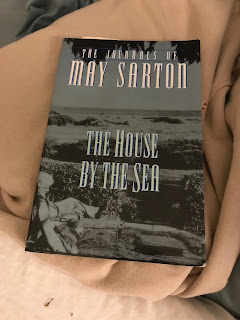photo by Anna Reavis
“Trust me, we are comrades in ruin.” --The Reverend
The problem with reading a book like The Outlander by Gil Adamson is that I have to finish it, and then there is no direction for my reading pleasure to go but down. There is no way the next book will be as entertaining or as emotionally fulfilling as a book I’ve loved almost every word of. At the same time, I feel lucky to have discovered such books in my life. It isn’t a matter of literary worth, although I do think this book has literary worth. It’s a matter of its worth to me at this certain time and in this certain place of my life.
There is poetry on almost every page. And how I love a strong, triumphant woman, especially one who is in the process of sewing her own widows weeds when her disastrous, ruinous, neglectful, cold-hearted husband comes home. She sets down her needle to pick up his rifle and shoot him with it. She then embarks on a journey that would kill most of us and discovers that for her there is no such thing as unbearable.
The journey is both a journey of the soul and a journey of the body and is mythological in the proportions of its occurrences. As she runs for her life, the widow discovers truths about and strengths in herself that were previously unknown to her. She wants to punish herself for not anticipating what she could not have known, for life raging out of control around her, as if she somehow could have checked that. She fears more than anything the darkness in herself. Her dreams scare her because she senses in them unforeseen dangerous truths, things she feels she should see coming but can’t. She wants to lie down and quit, wants to be too broken to be fixed, but she keeps getting back up. The widow is only 19 years old, and she already knows what so many of us never understand: that we give value to our own lives and that it is up to us to take from life what we can.
This book, for me, is fiction at its best. It helped me discover and understand truths about myself. The novels that speak to us do so because they teach us to name the unnamed in ourselves. We are all outlanders.




